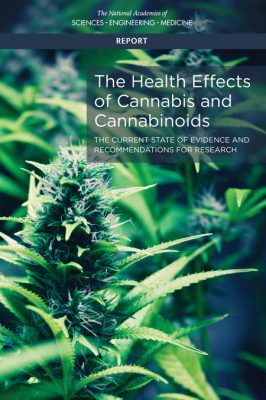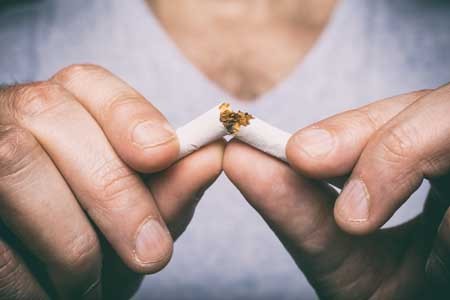National Academy of Sciences, Engineering and Medicine Issues Report on the Health Effects of Cannabis
 In early 2017, the National Academy of Sciences, Engineering, and Medicine issued its first comprehensive report on cannabis since 1999. Shifting public opinion over the past few decades has led to 28 states and the District of Columbia legalizing medical uses of marijuana, and eight states and DC legalizing recreational marijuana use. The Health Effects of Cannabis and Cannabinoids: Current State of Evidence and Recommendations for Research is intended to address the lack of accepted standards to guide individuals in deciding whether and how to use cannabis safely. In addition to summarizing recent health-related findings on cannabis, the report also offers recommendations to guide future research.
In early 2017, the National Academy of Sciences, Engineering, and Medicine issued its first comprehensive report on cannabis since 1999. Shifting public opinion over the past few decades has led to 28 states and the District of Columbia legalizing medical uses of marijuana, and eight states and DC legalizing recreational marijuana use. The Health Effects of Cannabis and Cannabinoids: Current State of Evidence and Recommendations for Research is intended to address the lack of accepted standards to guide individuals in deciding whether and how to use cannabis safely. In addition to summarizing recent health-related findings on cannabis, the report also offers recommendations to guide future research.
The report shares findings about possible therapeutic benefits to cannabis use as well as health impacts relating to areas such as cancer, respiratory disease, immunity, pre- and post-natal health.
There were several notable findings with regard to mental health. The committee that issued the report found substantial evidence of a statistical association between cannabis use and the development of schizophrenia or other psychoses, with the highest risk among the most frequent users.
The committee also found moderate evidence of a link between cannabis use and increased symptoms of mania and hypomania in people with bipolar disorder who use cannabis regularly. The report also describes moderate evidence of an association between heavy cannabis use and increased suicidal ideation and suicide attempts.
There was also moderate evidence that regular cannabis use is linked to social anxiety disorder.
The report described factors that may lead to problem cannabis use. The committee found substantial evidence that being male, smoking cigarettes, and beginning cannabis use at an earlier age are risk factors for developing problem cannabis use. Read more
Smoking Ban in New Jersey Jails Drastically Reduced Deaths of Inmates with Mental Illness
Policy changes by the New Jersey Department of Corrections drastically reduced the availability of tobacco products in New Jersey jails between 2005 and 2014. Prison commissaries reduced their stock of tobacco, prices increased, sales to minors were banned, and facilities were designated tobacco-free (including for staff and visitors).
Along with this reduction in the availability of tobacco products, the Department of Corrections also introduced smoking cessation programs, began offering nicotine replacement lozenges in commissaries, and increased treatment for tobacco use.
A surprise consequence of the decision to go tobacco-free was a drastic reduction of deaths among prison inmates with mental illness. The mortality rate for these inmates dropped by 48%. In contrast, the mortality rate for inmates without mental illness remained flat before and after the tobacco ban.
People with mental illness are at increased risk of mortality, particularly from cardiovascular illnesses. Now it seems that eliminating tobacco use can go a long way toward improving health and reducing mortality for these people.


